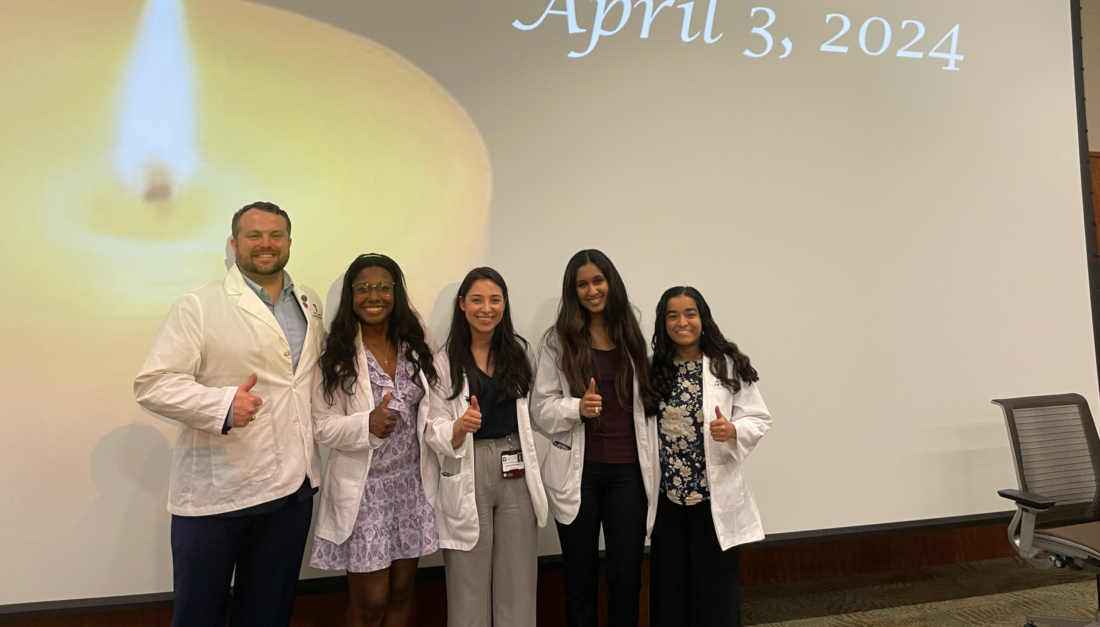Aggie medical students, doctors join the legislative conversation
 Medical education has long focused on training future doctors to think critically, examine symptomatic evidence and plan a response. Thanks to an elective course in health care advocacy, the Texas A&M Health Science Center College of Medicine is preparing students from the medical school’s multiple campuses to serve as future health care leaders who will participate in the decision-making process that is shaping the future of our nation’s health care system.
Medical education has long focused on training future doctors to think critically, examine symptomatic evidence and plan a response. Thanks to an elective course in health care advocacy, the Texas A&M Health Science Center College of Medicine is preparing students from the medical school’s multiple campuses to serve as future health care leaders who will participate in the decision-making process that is shaping the future of our nation’s health care system.
The Texas A&M College of Medicine’s course partners fourth-year medical students with organizations that develop and propose solutions for public health problems; in the two academic years the course has been active, participation has grown from a pilot year of two students to eight in the 2013-14 academic year.
Students who participated in the pilot year focused on pediatrics and psychiatry, meeting with organizations and legislators to discuss patient needs and structural change. This year’s cohort spanned career interests in cancer, anesthesia, emergency medicine, pediatrics, psychiatry and family medicine. Participating students observed the legislative process at the Texas State Capitol in Austin, met with health care industry experts versed in public affairs, governmental relations and community outreach, as well as professional organizations such as the American Cancer Society, Texas Hospital Association and patient support groups like the Sickle Cell Foundation.
“It’s crucial that medical schools educate the whole physician, and that includes service, leadership and engagement with public policy,” said Laura Ferguson, M.D., FAAP, assistant dean for faculty affairs and a regional chair of pediatrics at the Round Rock Campus and course director for the elective. “Through interactions with the people doing this work on the ground in Austin and other communities throughout the state, our students are gaining advocacy and leadership skills that will enable them to help drive health policy decisions, contributing to their profession and to the health of our nation.”
Ferguson notes that the trendline for doctor engagement in health care legislation and other advocacy activities is headed in a similar direction, with the Texas Pediatrics Society and others deciding to hold an advocacy day annually, rather than just in years which feature legislative sessions.
Ferguson foresees significant future opportunities for next year’s candidates, which will dive into another biennial legislative session. According to the Texas Medical Association, in 2013, Texas A&M’s medical school sent more students than any other school in the state to “First Tuesday” – a day of physician and medical student visits to the capitol to meet with legislators to discuss key issues in health care transformation and graduate medical education. Aggies everywhere are hoping for a repeat performance.
“This unique fourth-year opportunity helps train us to be complete physicians,” said Haoyu Lee, who will graduate from the Texas A&M College of Medicine this month and then will enter a residency in general psychiatry at the University of California-San Diego. “It prepares us to go beyond the clinic, and to become involved in the policy-making process so we can more effectively and meaningfully improve the lives of our patients.”
Media contact: media@tamu.edu


